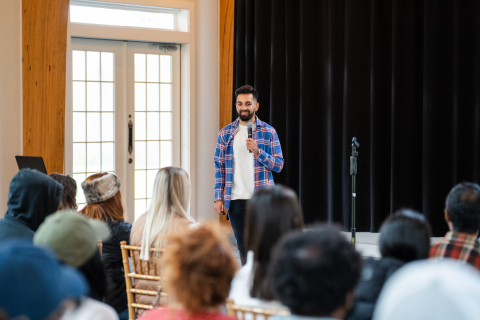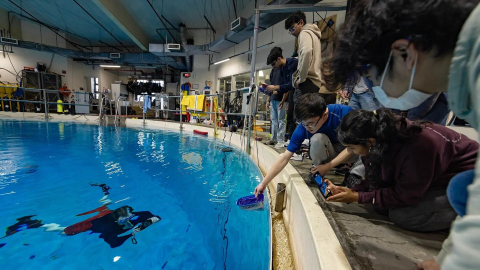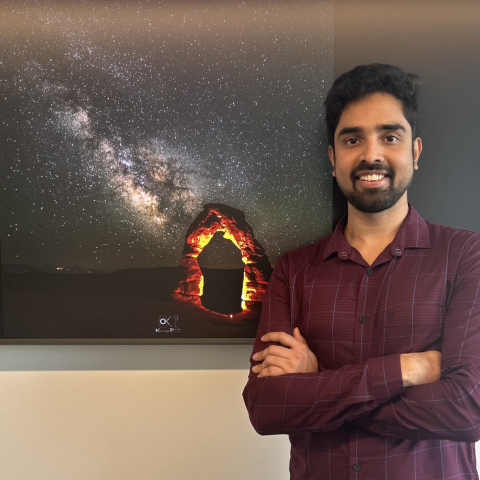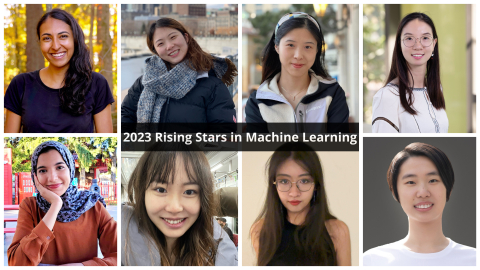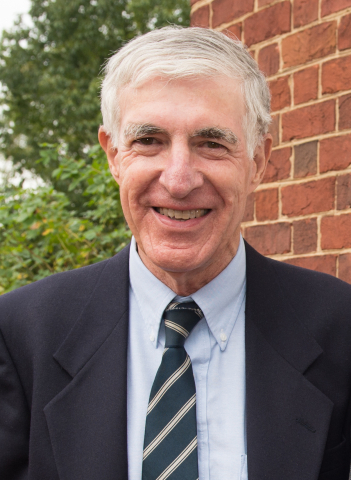Recent News & Accomplishments
2024
Akash Magoon hopes his $180K gift will help Terps ‘take the path less traveled’.
Akash Magoon (B.S. ’18, computer science) who is a member of the College of Behavioral and Social Sciences (BSOS) Board of Visitors, recently made a $180,000 donation to establish undergraduate student scholarships for four students per year. The need-based scholarships will be awarded to two BSOS students and two Department of Computer Sciences students, with a focus on those who grew up and reside in Baltimore at the time of enrollment. The scholarships will cover each recipient’s tuition costs for one year, with the possibility of being renewed, starting in fall 2024. Magoon—who is the co-... read more
Ng's story is marked by unwavering commitment and exceptional skill.
Data-driven innovation is shifting landscapes in every sector and University of Maryland alum Raymond Ng (Ph.D. '92, computer science) is at the forefront of this holding the baton of academic excellence and real-world impact. Being a veteran professor of Computer Science at the University of British Columbia, Raymond is not just an educator—he’s a visionary. His journey is as illustrious as his career, spanning continents and disciplines, culminating in his pivotal role as the Director of the Data Science Institute (DSI) established in 2017 within UBC’s Faculty of Science. Raymond’s tale is... read more
2023
His work aims to revolutionize how people of all skill levels engage with the digital arts.
Songwei Ge , a computer science Ph.D. student at the University of Maryland, recently received one of 10 NVIDIA Graduate Fellowships for his work on "Learning Artificial Creativity to Enhance Human Creativity." This project focuses on developing generative models for images and videos and aims to augment human creativity, enabling individuals to produce artistic content effortlessly, regardless of their skill level. The NVIDIA Graduate Fellowship supports the research of promising students in the field of computer science and related areas. The award includes a scholarship of up to $60,000... read more
Undergraduate research in robotics teaches computer science students to fail forward
The fish was floundering. Bobbing precariously at the edge of University of Maryland’s neutral buoyancy tank, a robotic catfish struggled to swim as the students coaxed its motor. The device should have been cruising along the surface of the 367,000-gallon pool; but despite countless tests, hours and design reboots, something had gone very wrong. That’s sort of the point, said Assistant Clinical Professor Lena Johnson ’14, M.S. ’16, Ph.D. ’22. “The creative process is all about iteration; that’s how everything gets better,” she said. “But also, it’s going to fail. Sometimes that’s the goal... read more
Manocha has been recognized for his significant impacts on quality of life, economic development and the welfare of society.
Distinguished University Professor Dinesh Manocha has been named a 2023 Fellow of the National Academy of Inventors (NAI) in recognition of his outstanding work in technology research and education and his contributions to academia and industry. Throughout his career, Manocha has successfully transitioned his research into marketable technology through his research groups and startup companies. His outreach has resulted in software systems, robot operating systems and computer-aided design to be employed by over 60 companies, including a number of Fortune 500 companies. “Congratulations to... read more
Koutilya Ponukupati concentrates on the fusion of generative AI and vision-language models to enhance computer vision systems.
As a graduate student working in the University of Maryland Institute for Advanced Computer Studies (UMIACS), Koutilya Ponukupati Naga Venkata Rama would often spend 50 or more hours each week conducting important research. Much of Ponukupati’s work focused on computer vision—particularly on topics that lay at the intersection of generative AI and vision-language models for improving existing computer vision systems. But when the lab work became overwhelming, or he needed a break to refresh or rethink ideas, Ponukupati would leave his academic home in College Park to visit some of the nation’... read more
The Center for Machine Learning hosts the annual program aimed at supporting researchers from underrepresented groups who are active in computer science and machine learning.
In a conscious effort to improve inclusion and diversity, the University of Maryland Center for Machine Learning hosts an annual program aimed at supporting graduate students, postdocs, and junior industry researchers from underrepresented groups who are active in computer science and machine learning. Now in its fifth year, the Rising Stars in Machine Learning program provides a $500 honorarium and all-expenses-paid trip to College Park, where selected scholars present their research and engage with UMD’s machine learning community. “This initiative is designed to position these emerging... read more
Hal Daumé discusses AI's future and its eventual use in real-world circumstances.
As generative AI continues to make significant strides, industry experts predict 2024 to be the year it will further enrich the technological landscape. According to leading figures, this year will not just see the general-purpose AI models, but also the introduction of more specialized AI tools designed to address needs in specific domains. TECHnalysis president Bob O’Donnell, among others, suggests that this year will witness the integration of AI in everyday devices, shaping how people use technology in their daily lives. From PCs and smartphones to audio and video platforms, AI’s... read more
Maryland Cybersecurity Center researchers honored for study on China's real-time encryption blocking system.
Researchers in the Maryland Cybersecurity Center have been recognized for their groundbreaking study on China’s latest censorship system that blocks fully-encrypted traffic in real time. “Our work not only provides a detailed, data-driven understanding of how China has been censoring fully-encrypted traffic, it also uses these new findings to present a slew of ways to circumvent censorship,” says Dave Levin , an associate professor of computer science and core member in MC2. The Great Firewall of China (GFW) is the nickname given to the combination of tools, services and rules that the... read more
He received the esteemed award for his pioneering research and scholarship in spatial databases and related fields.
Hanan Samet , a Distinguished University Professor of computer science with an appointment in the University of Maryland Institute for Advanced Computer Studies is the inaugural recipient of the Lifetime Impact Award from the Association for Computing Machinery’s Special Interest Group on Spatial Information (ACM SIGSPATIAL). He was honored for his pioneering research and scholarship in spital databases and related fields and dedicated service to ACM SIGSPATIAL. The award recognized his five decades of advancing technical achievements and educational tools focused on databases, data... read more
